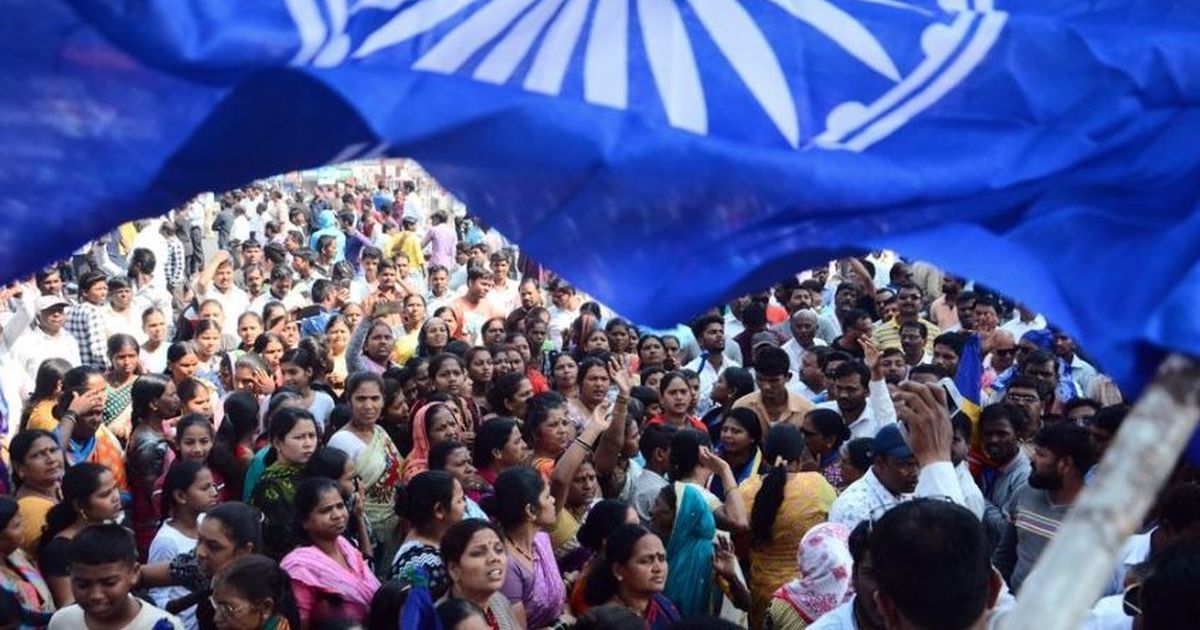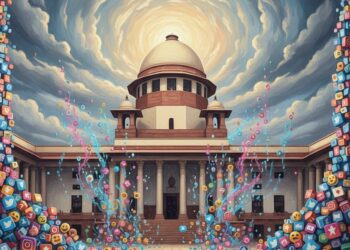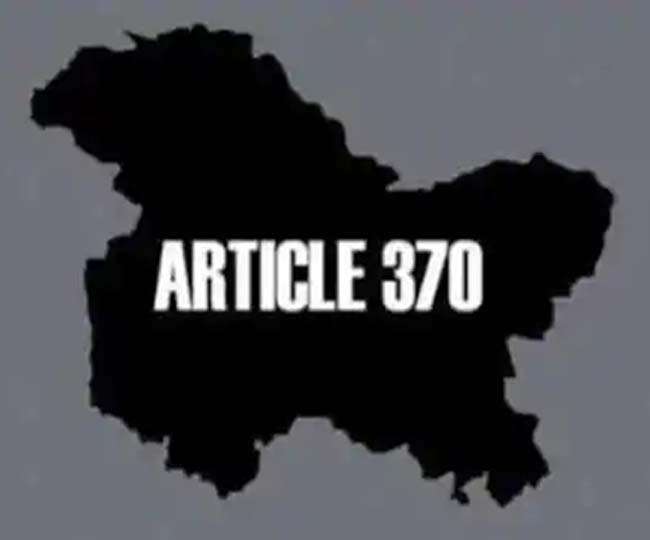The judgment of the Supreme Court in Dr. Subhash Kashinath Mahajan v. The State of Maharashtra [Criminal Appeal No. 416 of 2018, decided on March 20, 2018] came under sharp criticism from several quarters and was also vigorously and, on some occasions, even violently protested against by the organizations and unorganized groups of people purporting to be the representatives of the class of people under the protection of the Scheduled Castes and Tribes (Prevention of Atrocities) Act, 1989 (SC/ST Act). The protestors and critics of the judgment feel that the Act that was doing a fine job of extending protection to the underprivileged classes has somehow been made less effective, and the semblance of assurance against atrocities at the hands of the privileged classes that the downtrodden classes had stands eroded. Such a grim view of the judgment might have arisen due to a jaundiced misreading of the judgment.
Freedom, for any living being, is the second most precious thing after life itself and for that reason right against arbitrary incarceration is the foremost right after Right to Life, which explains why right to personal liberty finds place together with Right to Life under Article 21 of the Constitution. Any law that deprives a person of personal liberty must not have just been enacted through a ‘procedure established by law’ but must also be ‘just, fair and reasonable’, failing which it might not only fail the test of constitutionality under Article 21, but might also fall afoul of Article 14 for being arbitrary and unreasonable.
On the other hand, however, it is the duty of the state to ensure that the weaker sections of the society, apart from being effectively protected against oppression, have a sense of security and the assurance that atrocities against them would be adequately redressed and the guilty be adequately punished. It is against this backdrop and from the perspective of the need for balancing the two constitutional duties the state is entrusted with that the recent judgment by the Supreme Court that supposedly takes the bite out of the cutting provisions of the SC/ST Act has to be seen.
The laws that tinker with the Doctrine of Presumption of Innocence, which is the cornerstone of criminal jurisprudence and is also one of the human rights under Article 14 (2) of the International Covenant on Civil and Political Rights, must show a strong reason for preferring the version of the complainant over the version of the accused. They must satisfactorily answer this simple question: how and why is it more probable that the complainant is telling the truth? Arrest made on a mere complaint without making any inquiries interferes with and severely undermines the Doctrine of Presumption of Innocence, and paves the way for potential miscarriage of justice because if an innocent person had to spend any period of time in prison without being guilty, it is nothing short of injustice. The irreparable harm done to the person by unjust incarceration cannot be compensated for because the time of life lost behind bars cannot be restored to the person by any means.
The reversal of burden of proof and presumption of guilt is generally backed by some reasoning, more or less sound. For instance, the reversal of the burden of proof in cases of sexual offences against women is based on the assumption that a woman would not lightly accuse a man of such crimes because there is social stigma attached to being the victim of a sexual offence. Although it makes no sense to blame the victim for any offence, the society seems to look down upon a victim of rape and also, to a lesser degree, upon a victim of molestation, which discourages women from coming out and pressing criminal charges against the offenders. However, this also means that when the woman gathers the courage to invoke legal machinery to have the guilty punished, she is generally telling the truth and for that reason it is the accused who has to overturn the assumption, failing which he runs the risk of being convicted. But in this case, it is at the stage of trial that the question of presumption of guilt or innocence arises. How far could the prosecution make its case and how effectively could the accused defeat the presumption of guilt against him has to be analyzed by a competent court in view of the evidence led before it, based on which the court would convict or acquit the accused.
However, where the investigation agency is practically compelled to arrest the accused on a mere complaint and the courts are barred from granting anticipatory bail, it’s a case of the punishment starting not only before the commencement of the trial but also before the start of the investigation on the flimsy assumption of the truthfulness of the complainant. In this case there is no stigma attached to being a victim of the atrocities, and there is no plausible reason to presume the truthfulness of the complainant, unlike in the case of a woman complaining of sexual assault.
Section 18 of the SC/ST Act bars the application of Section 438 of the Code of Criminal Procedure thereby foreclosing the option of Anticipatory Bail for the accused. The exclusion of the court’s jurisdiction to grant bail even when the court might be of the opinion that the arrest is not required takes away judicial discretion completely and leaves the accused at the mercy of the police and the string-pulling that comes with it.
 A Constitution Bench of the Supreme Court in Gurbaksh Singh Sibbia v. State of Punjab, (1980) 2 SCC 565, found such position of law unconstitutional in which the courts were rendered powerless to grant Anticipatory Bail even in the cases where no case against the accused was made out. The Supreme Court held that “Section 438 is a procedural provision which is concerned with the personal liberty of the individual, who is entitled to the benefit of the presumption of innocence since he is not, on the date of his application for anticipatory bail, convicted of the offence in respect of which he seeks bail. An over-generous infusion of constraints and conditions which are not to be found in Section 438 can make its provisions constitutionally vulnerable since the right to personal freedom cannot be made to depend on compliance with unreasonable restrictions.” The apex court also drew the attention to Maneka Gandhi v. Union of India, (1978) 1 SCC 248, in observing that the Article 21 demands that the ‘procedure established by law’ to deprive one of personal liberty must be ‘just, fair and reasonable’. “Section 438, in the form in which it is conceived by the legislature, is open to no exception on the ground that it prescribes a procedure which is unjust or unfair. We ought, at all costs, to avoid throwing it open to a Constitutional challenge by reading words in it which are not to be found therein,” the Supreme Court held.
A Constitution Bench of the Supreme Court in Gurbaksh Singh Sibbia v. State of Punjab, (1980) 2 SCC 565, found such position of law unconstitutional in which the courts were rendered powerless to grant Anticipatory Bail even in the cases where no case against the accused was made out. The Supreme Court held that “Section 438 is a procedural provision which is concerned with the personal liberty of the individual, who is entitled to the benefit of the presumption of innocence since he is not, on the date of his application for anticipatory bail, convicted of the offence in respect of which he seeks bail. An over-generous infusion of constraints and conditions which are not to be found in Section 438 can make its provisions constitutionally vulnerable since the right to personal freedom cannot be made to depend on compliance with unreasonable restrictions.” The apex court also drew the attention to Maneka Gandhi v. Union of India, (1978) 1 SCC 248, in observing that the Article 21 demands that the ‘procedure established by law’ to deprive one of personal liberty must be ‘just, fair and reasonable’. “Section 438, in the form in which it is conceived by the legislature, is open to no exception on the ground that it prescribes a procedure which is unjust or unfair. We ought, at all costs, to avoid throwing it open to a Constitutional challenge by reading words in it which are not to be found therein,” the Supreme Court held.
More recently, building upon the same rationale, the Supreme Court in Nikesh Tarachand Shah v. Union Of India, Writ Petition (Criminal) No. 67 of 2017, struck down Section 45(1) of the Prevention of Money Laundering Act, 2002, as unconstitutional insofar as it imposed additional fetters on the power of the court to grant bail, for the additional limitations were found in violation of Article 14 and Article 21 of the Constitution.
In Siddharam Satlingappa Mhetre v. State of Maharashtra, (2011) 1 SCC 694, laying down the parameters for the grant of Anticipatory Bail, the Supreme Court observed:
“A great ignominy, humiliation and disgrace is attached to the arrest. Arrest leads to many serious consequences not only for the accused but for the entire family and at times for the entire community. Most people do not make any distinction between arrest at a pre-conviction stage or post-conviction stage.“
Therefore, the denial of Anticipatory Bail to an innocent person is tantamount to pronouncing the person guilty as far as the general perception of the people is concerned. What good could come of heaping such ignominy on an innocent person? Dragging innocent people through the mud couldn’t be the objective of any law, no matter how tough and/or well-meaning.
The question, therefore, is how to interpret a statute that bars the courts from granting Anticipatory Bail. Should the constitutional courts allow the will of legislature to run amok and create havoc, or should they try to control and rein in the sway of injustice caused by an overambitious provision of law?
In Hema Mishra v. State of U.P., (2014) 4 SCC 453, the Supreme Court ruled that even the express statutory bar against anticipatory bail cannot stop a constitutional court from exercising its jurisdiction to grant relief. Lal Kamlendra Pratap Singh v. State of Uttar Pradesh, (2009) 4 SCC 437, and Kartar Singh v. State of Punjab, (1994) 3 SCC 569, which were considered in Hema Mishra, clearly state that regardless of the statutory ban, the constitutional courts are not barred from exercising extraordinary jurisdiction to grant anticipatory bail. All three cases were referred to and considered by the Supreme Court in Dr. Subhash Mahajan.
The complication, however, was that as far as Section 18 of the SC/ST Act was concerned, the provision had been held constitutional in State of M.P. v. Ram Krishna Balothia, (1995) 3 SCC 221, but in deciding the case the Supreme Court had not considered the Constitution Bench judgment in Gurbaksh Singh Sibbia v. State of Punjab, which allowed the Supreme Court in Dr. Subhash Mahajan to reinterpret Balothia in the light of Gurbaksh Singh. In Balothia, the Supreme Court had ruled in favour of the constitutionality of Section 18 of the SC/ST Act in view of the prevailing social conditions in which the oppressors of the underprivileged classes could intimidate the victims and get away with perpetrating the atrocities on them by obstructing the wheels of justice if they were granted bail. However, the judgment, despite having considered the vulnerability of the downtrodden, had not paid sufficient attention to the plight of those who were falsely implicated. Denial of Anticipatory Bail to the perpetrators, or the probable, or even the possible perpetrators made perfect sense, but denying bail to those against whom the offence under the SC/ST Act was not made out did not seem to reflect the spirit of the Supreme Court judgment in Balothia.
With that distinction made, it was not necessary for the Supreme Court to reconsider Balothia and refer the matter to a larger bench to examine the constitutional validity of Section 18 afresh. In short, Balothia protects the underprivileged from the perpetrators of atrocities against them while Dr. Subhash Mahajan prevents the innocent from being falsely implicated by putting in place legal safeguards on the force of Maneka Gandhi v. Union of India, wherein it was ruled that the ‘procedure established by law’ as provided under Article 21 must be ‘just, fair and reasonable’. Building in safeguards to protect the innocent was the only viable way to save Section 18 from an imminent constitutional invalidation for failing to stand the test of Article 21.
The perception that Dr. Subhash Mahajan somehow dilutes the SC/ST Act is clearly misplaced because all it does is protect the innocent from being put behind the bars on false and frivolous complaints resulting from extraneous issues and unconnected disputes between parties belonging to upper and lower castes. The guilty still have to bear the full force of the Act and there has been no interference with that part of the law.
The allegation that the Dr. Subhash Mahajan has rewritten the SC/ST Act, which amounts to ‘judicial legislation’ is also untenable because laying down guidelines for the just enforcement of laws does not amount to ‘legislation,’ for it is the duty of the constitutional courts to make sure that the laws are enforced in their right spirit and do not, in their enforcement, trample upon the Fundamental Rights guaranteed by the Constitution. If they do come in conflict with the Fundamental Right, the constitutional courts can enforce such laws in such a matter as to not warrant a striking down, which is what the judicial guidelines in cases such as Dr. Subhash Mahajan are meant to do.
Guidelines regarding arrests in order to protect innocent citizens against needless incarceration is nothing new. In Arnesh Kumar v. State of Bihar, (2014) 8 SCC 273, the Supreme Court ruled that the power of arrest could have a profound effect on the life of the arrestee, as “arrest brings humiliation, curtails freedom and casts scars forever” and it is also considered “a tool for harassment and oppression”. In order to curtail arbitrary and mechanical arrests, the Supreme Court laid extensive guidelines “to ensure that police officers do not arrest the accused unnecessarily and Magistrates do not authorise detention casually and mechanically.”
Before that, in D.K. Basu v. State of West Bengal, (1997) 1 SCC 416, the Supreme Court had issued another set of detailed guidelines to check the abuse of the power of arrest and ensure that the constitutional rights of the arrestees are duly honoured and are not cast aside as meddling inconvenience by the police officers making the arrest.
Therefore, the issuing of guidelines by the constitutional courts to protect people against arbitrary arrests does not amount to judiciary’s stepping into the domain of the legislature, but is a dutiful discharge of the constitutional duty by the constitutional courts.
In Dr. Subhash Mahajan, the Supreme Court ruled that the police officers investigating a complaint under the SC/ST Act must conduct a preliminary inquiry before registering an FIR in the case. The Constitution Bench judgment in Lalita Kumari v. State of U.P., (2014) 2 SCC 1, mandates a necessary filing of an FIR wherever and whenever there is an allegation of a cognizable offence. However, Lalita Kumari does leave scope for a preliminary inquiry before the filing of an FIR in cases where such a course might be necessary. “Although, we, in unequivocal terms, hold that Section 154 of the Code postulates the mandatory registration of FIRs on receipt of all cognizable offences, yet, there may be instances where preliminary inquiry may be required owing to the change in genesis and novelty of crimes with the passage of time,” the Supreme Court said in Lalita Kumari, and drew an illustrative, non-exhaustive list of cases in which a preliminary inquiry prior to the registration of an FIR might be required.
Dr. Subhash Mahajan, in view of the abuse of the SC/ST Act, chose to place the complaints under the SC/ST Act in the category of complaints in which a preliminary inquiry is required before the filing of the FIR so as to protect the innocent against arbitrary arrests on baseless complaints. However, even that cannot be described as a ‘dilution’ of the SC/ST Act because the preliminary inquiry has to be time-bound and is not to exceed seven days in terms of the directions in Lalita Kumari, which were reiterated by the Supreme Court in Dr. Subhash Mahajan as well.
The perception that somehow the Supreme Court has blunted the cutting edge of the SC/ST Act with Dr. Subhash Mahajan seems to be based on the erroneous belief that by disallowing instant arrest the Supreme Court has extended some protection to the guilty at the cost of the underprivileged whereas the Supreme Court has only extended the protection to the innocent against arbitrary arrest. Can one really argue against that?
The purpose of a penal law cannot be to punish the innocent or to instill fear of the ‘oppressed’ in the minds of the members of the ‘oppressor class’. The purpose can only be to punish the guilty and deter the potential oppressors. The fear that if one commits the act prohibited by law, one will be punished is the legally intended deterrence, but the fear that even on a false complaint one might be incarcerated is nothing but reverse oppression completely unintended by the law.
Originally published as Cover Story in Lawyers Update [April 2017, Vol XXIV, Part 5].






